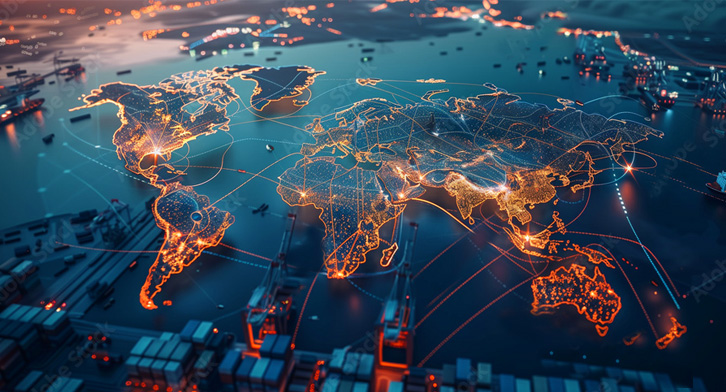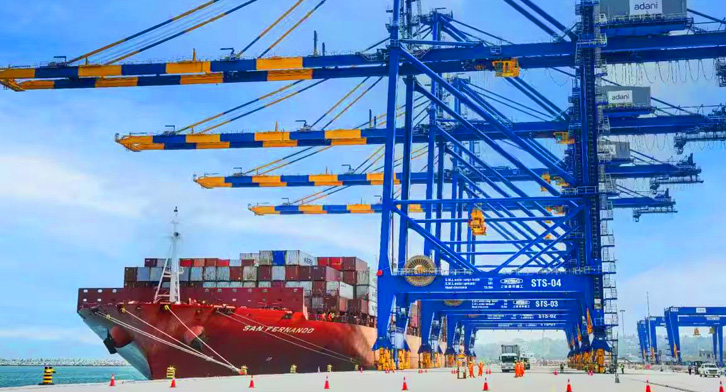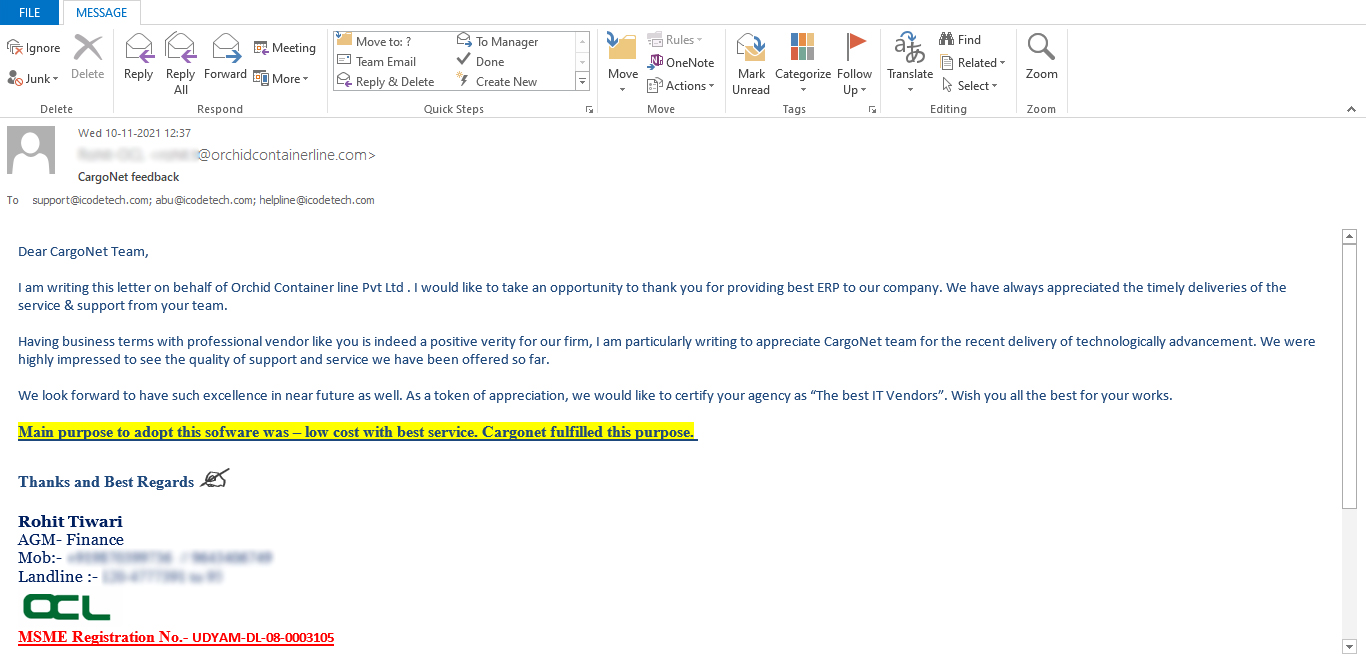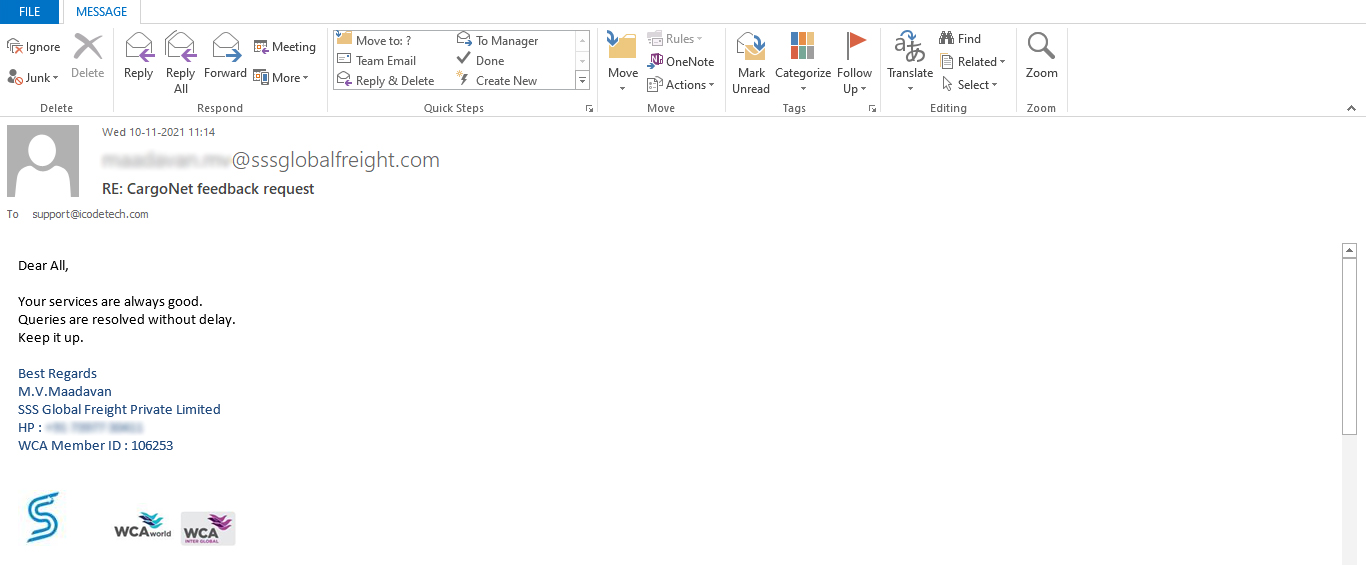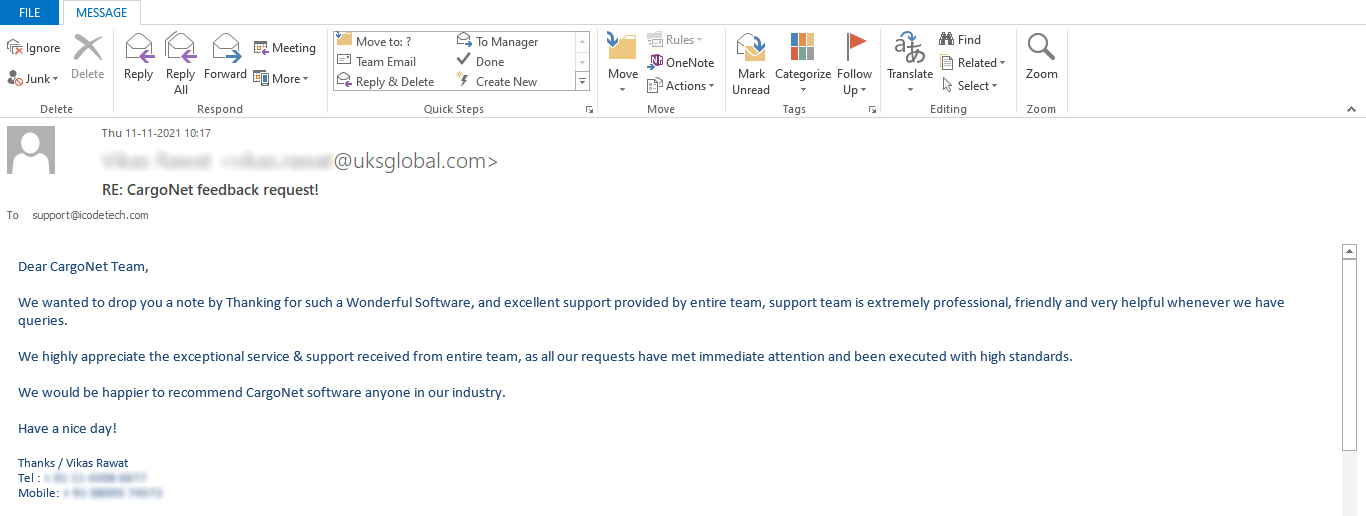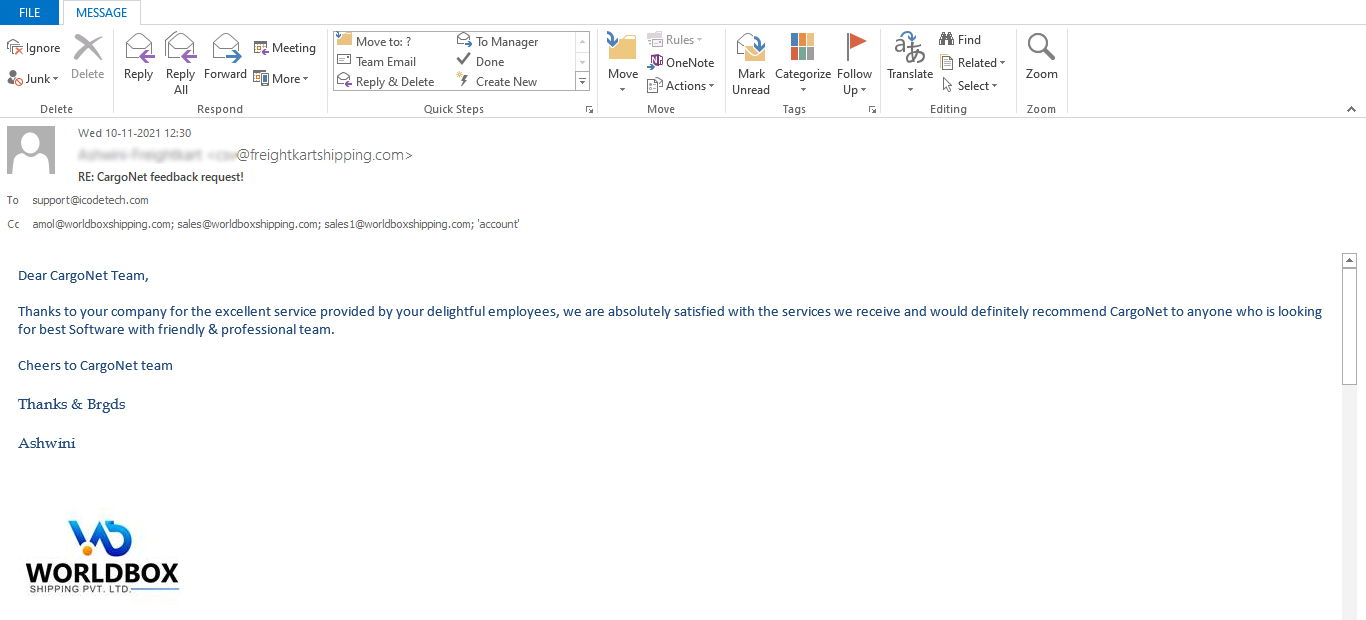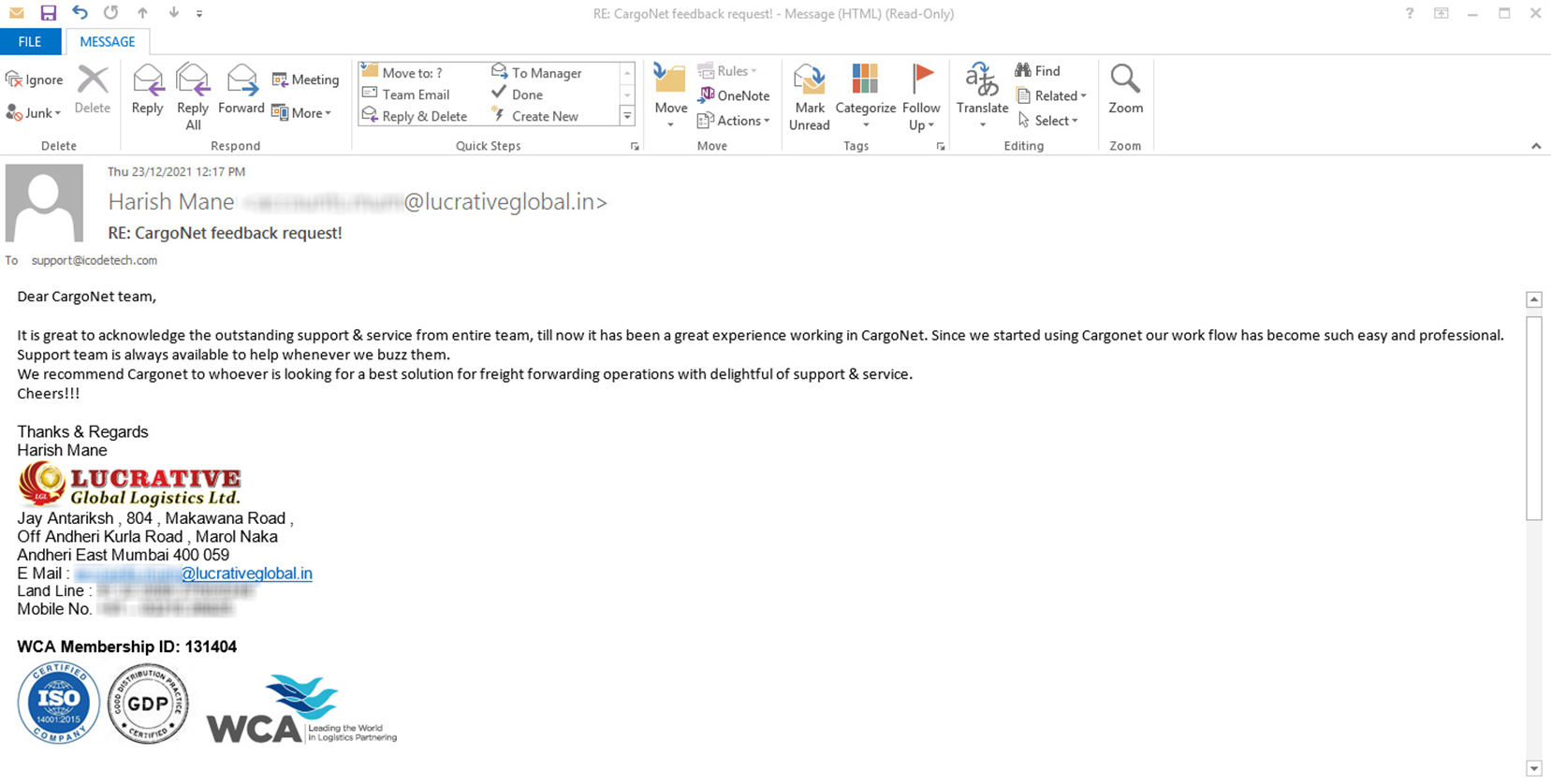Smarter Logistics with AI Agents: How CargoNet Helps Freight Forwarders Work Faster, Smarter & Easier
Tired of chasing updates, fixing manual errors, or juggling too many disconnected freight systems?
You’re not alone—and there’s a smarter way forward.
Meet CargoNet’s AI agent for logistics: your always-on, always-learning digital assistant that automates your daily freight tasks, makes intelligent decisions, and keeps everything moving—faster and more efficiently.
Whether you’re a freight forwarder, NVOCC, or 3PL, our AI-powered system helps you handle more shipments with less stress. From route planning and inventory forecasting to auto-generating shipping docs and customer updates, CargoNet’s AI agents do the heavy lifting so you can focus on growing your business.
What Is an AI Agent for Logistics?
An AI agent for logistics is like a digital teammate—one that’s always online, always learning, and always helping you move faster.
These smart agents use machine learning, natural language processing, and predictive analytics to automate everything from shipment planning to customer communication.
Here’s how it works:
- It suggests the best delivery route based on real-time traffic and weather
- It predicts inventory needs using past trends and sales cycles
- It fills out your shipping documents for you—no more copy-paste
- It sends updates to customers automatically
- It spots risks like port delays or supply issues before they become a problem
CargoNet makes it easy to plug these AI agents right into your freight operations.
Here’s how it works:
Here’s how CargoNet’s AI agents fit right into your operations:
- 1. Connect – CargoNet integrates with your TMS, CRM, carrier systems, and customs portals via EDI, API, or direct data import.
- 2. Ingest Data – It pulls in shipment details, customer requests, traffic info, weather, and sales data.
- 3. Analyze & Predict – The AI agent spots patterns, predicts risks (like delays or demand spikes), and recommends actions.
- 4. Automate – It auto-generates BLs, invoices, and customs docs; updates clients with real-time tracking; and optimizes routes—all without manual input.
- 5. Improve Constantly – The more you use it, the smarter it gets. It learns from every shipment, every outcome, and every customer interaction.
AI Agents in Freight Forwarding: Solving Your Real Problems
Your Challenge
Without CargoNet AI Discipline
Too much manual entry
Auto-generates B/Ls, invoices, customs forms—no errors, no delays
Unplanned delivery delays
Calculates best delivery routes with live traffic, weather, and driver data
Poor shipment visibility
Tracks your containers in real-time and updates clients automatically
Guesswork in inventory
Predicts future stock needs using historical and live order data
Late reaction to disruption
Monitors global risks and reroutes cargo in real-time
Overwhelmed customer service
Handles FAQs and status updates using AI-powered virtual assistants
And the best part? You don’t need to overhaul your current systems—CargoNet integrates easily into your existing workflow. Want to see it in action?
CTA Button(PopUP)- Start Your 60-Day Free Trial to experience how effortlessly it fits your freight operations.
What Are the Real Benefits?
CargoNet’s AI agent for logistics and freight forwarding transforms your daily workflow into a streamlined, data-driven engine. Here’s what you gain:
Benefit
How It Helps
Save Time
Automates routine tasks like documentation, invoicing, and updates
Reduce Errors
Eliminates manual data entry and duplicate work
Improve Delivery Performance
Plans smarter routes using real-time traffic, weather, and carrier availability
Boost Visibility
Tracks every shipment and sends instant updates to clients
Predict Inventory Needs
Uses sales history and market data to forecast demand accurately
Handle Disruptions Proactively
Flags risks early—so you can reroute or rebook in minutes
Scale with Less Overhead
Manage more shipments without hiring more staff
Why Freight Forwarders Choose CargoNet’s AI Agents
- Faster workflows – Automate booking, documents, and dispatch
- Smarter insights – Make better decisions with real-time data
- Happier clients – Send live updates and respond instantly
- Lower costs – Use less fuel, plan better loads
- No growing pains – Scale your business without adding headcount
With CargoNet’s AI agent for logistics, your freight operations stay one step ahead—even when the market shifts.
What Makes CargoNet Different?
Unlike generic tools, CargoNet is purpose-built for the freight forwarding industry. Our platform helps you stay competitive with:
- Digital Freight Matching – AI agents automatically pair loads with available carriers
- Supply Chain as a Service (SCaaS) – AOutsource complex ops while maintaining full control
- Self-Learning AI – Our system improves with every shipment and interaction



